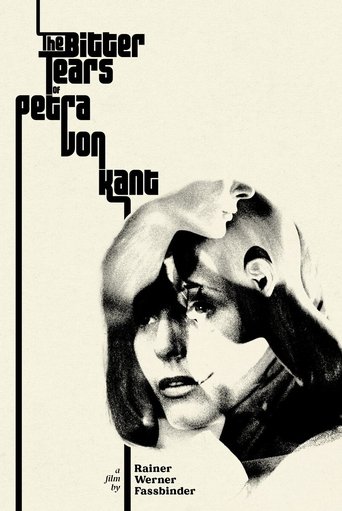Sex is the ultimate weapon.
"Die bitteren Tränen der Petra von Kant" (1972), a cinematic masterpiece crafted by Tango Film and Filmverlag der Autoren in Germany, is a poignant exploration of love, power dynamics, and emotional turmoil. Directed by Rainer Werner Fassbinder, the film delves into the life of Petra von Kant, a successful fashion designer navigating the complexities of her relationships. The narrative unfolds within the confines of Petra's opulent home, where the camera meticulously captures the emotional landscape of its characters, emphasizing the claustrophobic nature of their interactions. The film's visual style is striking, characterized by its use of static camera work and deliberate framing, which heightens the sense of tension and isolation. The set design, adorned with baroque elements and mannequins, serves as a metaphor for Petra's life, where artifice and reality blur. The performances, particularly by Margit Carstensen as Petra, are intense and raw, drawing the audience into the psychological depths of the characters. The film's dialogue, sharp and emotionally charged, further amplifies the drama, making every scene a compelling study of human emotions. At its core, "Die bitteren Tränen der Petra von Kant" is a critique of the power imbalances inherent in relationships, particularly those influenced by social and economic status. Petra's relationship with her new love interest, Karin, evolves from infatuation to obsession, revealing the destructive nature of possessiveness and dependency. The film also explores themes of self-delusion and the quest for identity, as Petra grapples with her own vulnerabilities and desires. Through its unflinching portrayal of these dynamics, the film offers a timeless commentary on the human condition. In conclusion, "Die bitteren Tränen der Petra von Kant" remains a significant work in German cinema, showcasing Fassbinder's unique ability to weave complex emotional narratives with a visually arresting style. The collaboration between Tango Film and Filmverlag der Autoren resulted in a film that not only challenges its audience but also leaves a lasting impact, resonating with viewers through its exploration of universal themes of love, power, and self-discovery.
Year1972
Runtime124 min
GenresDramaRomance
Production countriesGermany
